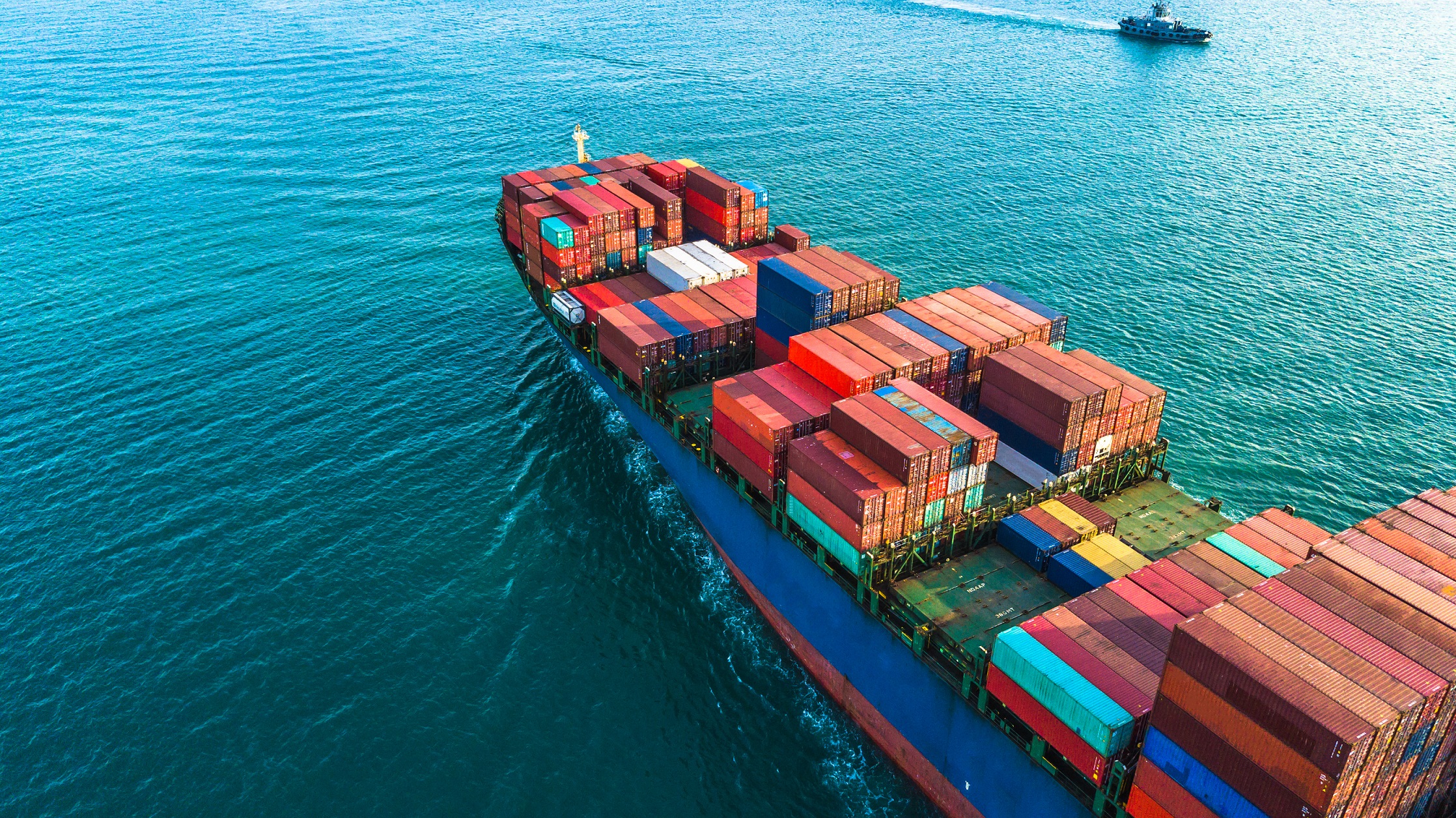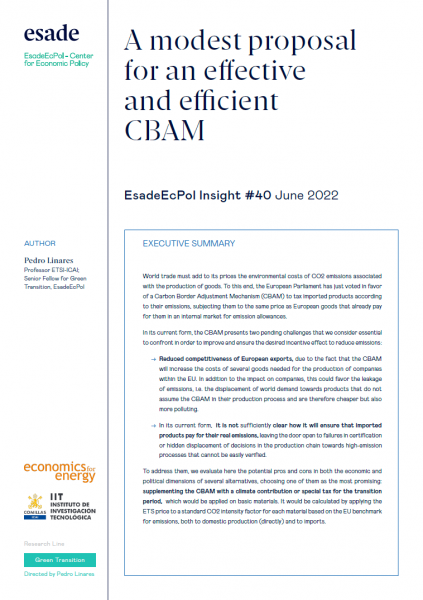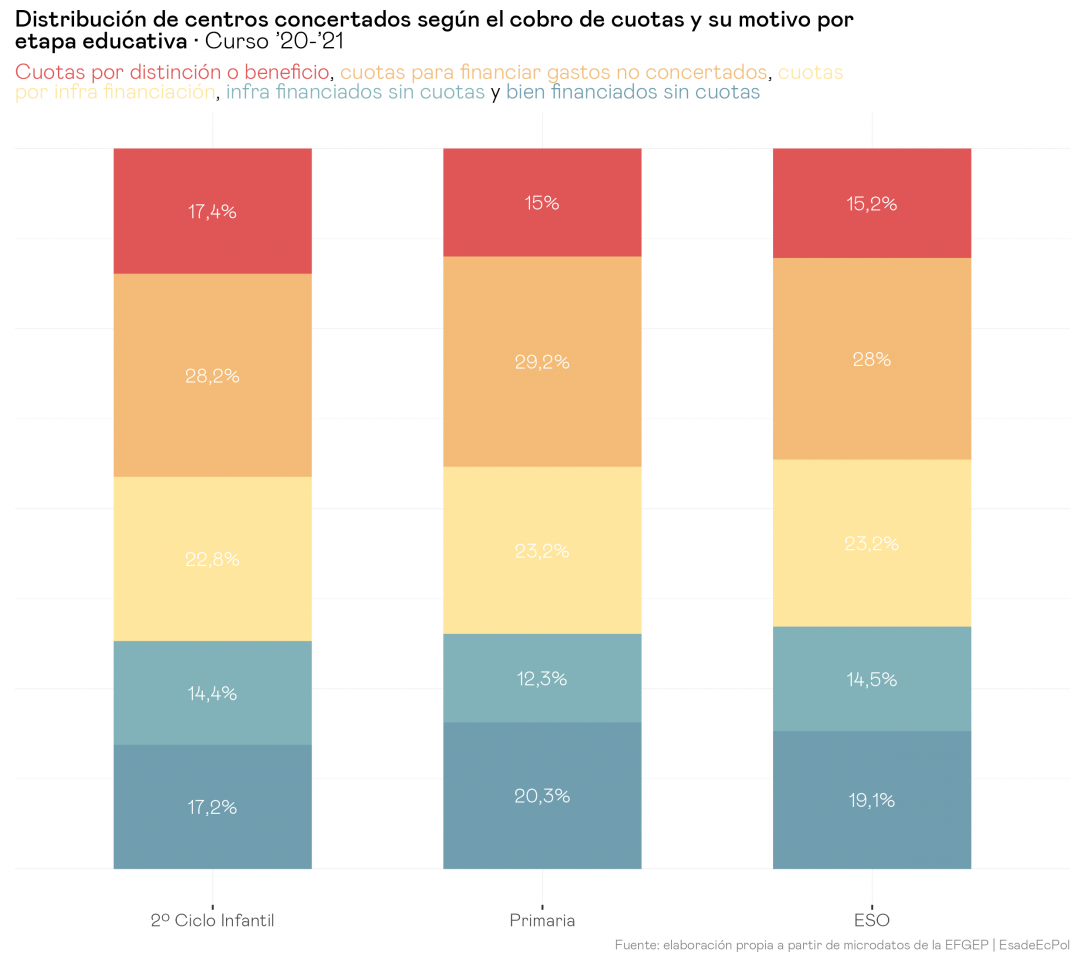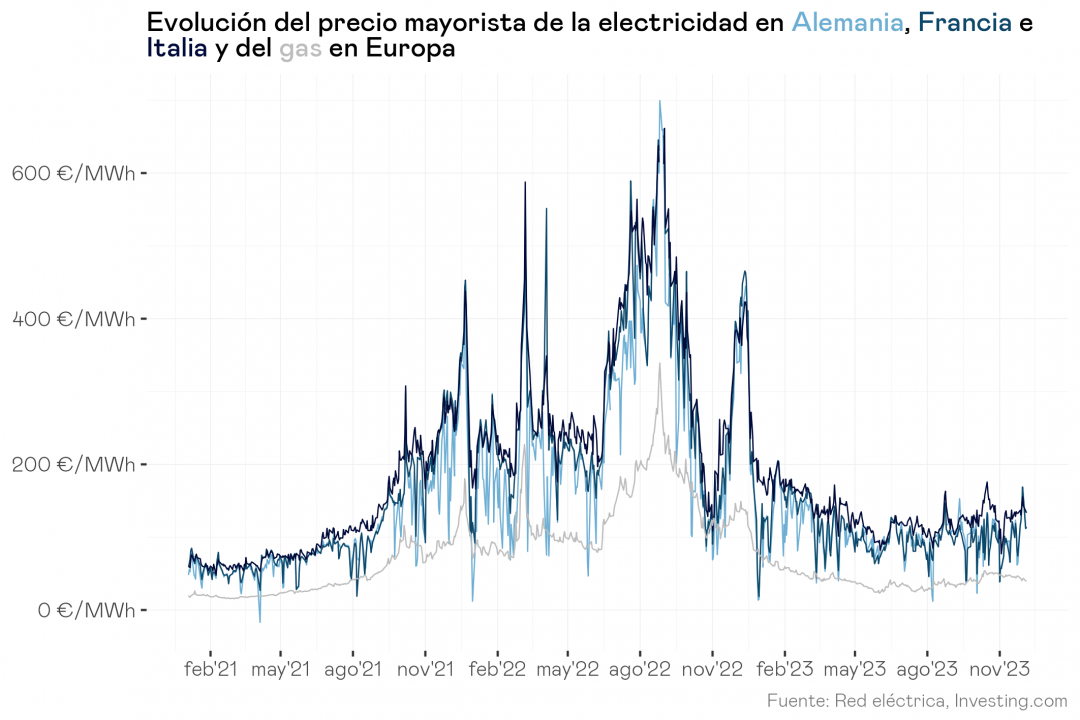
A modest proposal for an effective and efficient CBAM
Pedro Linares Llamas
30 Jun, 2022
World trade must add to its prices the environmental costs of CO2 emissions associated with the production of goods. To this end, the European Parliament has just voted in favor of a Carbon Border Adjustment Mechanism (CBAM) to tax imported products according to their emissions, subjecting them to the same price as European goods that already pay for them in an internal market for emission allowances.
In its current form, the CBAM presents two pending challenges that we consider essential to confront in order to improve and ensure the desired incentive effect to reduce emissions:
→ Reduced competitiveness of European exports, due to the fact that the CBAM will increase the costs of several goods needed for the production of companies within the EU. In addition to the impact on companies, this could favor the leakage of emissions, i.e. the displacement of world demand towards products that do not assume the CBAM in their production process and are therefore cheaper but also more polluting.
→ In its current form, it is not sufficiently clear how it will ensure that imported products pay for their real emissions, leaving the door open to failures in certification or hidden displacement of decisions in the production chain towards high-emission processes that cannot be easily verified.
To address them, we evaluate here the potential pros and cons in both the economic and political dimensions of several alternatives, choosing one of them as the most promising: supplementing the CBAM with a climate contribution or special tax for the transition period, which would be applied on basic materials. It would be calculated by applying the ETS price to a standard CO2 intensity factor for each material based on the EU benchmark for emissions, both to domestic production (directly) and to imports.
This alternative provides six key advantages:
→ It is not a trade measure, but a domestic one (similar to VAT), and therefore does not have to be approved by the WTO, allowing for faster implementation.
→ It covers a wider range of products and eliminates incentives for import substitution.
→ As an excise tax, it allows exporters to be excluded from paying it. However, if the EU wants to prevent dirty products from being exported, it could easily exempt the excise tax only partially and thus penalize the processes that emit the most, even if they are export-oriented.
→ By setting a standard value for imports (as for domestic production), greenwashing is avoided.
→ It guarantees an important source of revenue that can be used for industrial decarbonization as a safety net for the most affected sectors, with special attention to their workers, or to help third countries to decarbonize. In this sense, such an alternative would make a crucial redistributive contribution that would make industrial/ commercial decarbonization fairer and help legitimize it.
→ Since industrial emissions are already penalized by the excise tax, the free allocation could continue, to avoid double taxation. However, this free allowance could be granted only if it is subject to specific decarbonization plans, thus strengthening the incentive to decarbonize.
Finally, this measure would imply potential problems that could be faced or downgraded:
→ The fact that it is not a commercial measure does not mean that it should not be negotiated with third parties. However, this can be facilitated if part of the revenue, as mentioned above, is used to help these countries decarbonize.
→ A European excise tax must be unanimously approved by the Member States, which can certainly be difficult. However, this can be avoided if the excise tax is incorporated as an element of the ETS. In this case, majority approval would be sufficient.
→ Setting the excise duty at the EU reference value would still benefit the dirtiest producers abroad, as they would only pay for reference emissions, not actual emissions. The measure should therefore be complemented by foreign aid to help third countries decarbonize.


Professor at Universidad Pontificia Comillas


